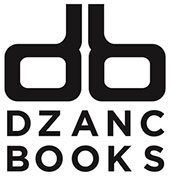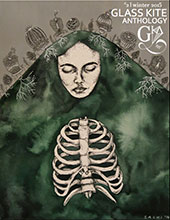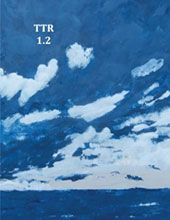 The Tishman Review gets its name from Tishman Hall, located on the campus of Bennington College where co-founding editors Maura Snell and Jennifer Porter gave their graduate lectures and readings as students in the Bennington Writing Seminars. They are joined by Joanne Nelson, editor for creative nonfiction.
The Tishman Review gets its name from Tishman Hall, located on the campus of Bennington College where co-founding editors Maura Snell and Jennifer Porter gave their graduate lectures and readings as students in the Bennington Writing Seminars. They are joined by Joanne Nelson, editor for creative nonfiction.
Publishing quarterly fiction, poetry, creative nonfiction, and art, including cartoons, the current issue of The Tishman Review is available for free online. All issues are available to purchase as an e-book and in print-on-demand.
Porter tells me they started a magazine “to be DIFFERENT. We wanted to pay our contributors, we wanted to be hands-on editors—not only reading everything that comes in (and often providing feedback) but also editing accepted pieces, we wanted to be open to what authors are creating rather than having pre-determined ideas of what they should be writing.”
As a result of their up-to-elbows approach, readers can expect to find a selection of poetry, prose and art that “speaks to the human condition” and “hopefully elicits a response, whether it be emotional or intellectual.”
There have been no preset themes for submissions, though themes have appeared from among the works once they have been selected for publication. The editors shared, “We do like to publish work that challenges the ‘isms of sex, race, age, etc.”
Among those writers whose works have been selected, in poetry: Lauren Davis, Ace Boggess, Barrett Warner, Karla Van Vliet and Jennifer Martelli; in fiction: Tamas Dobozy, Amanda Pauley, Laura Jean Schneider, Lee L. Krecklow, James English, and Mercedes Lawry; in creative nonfiction: Robert Vivian, Jayne Guertin, and Kerrin O’Sullivan.
For the July issue, The Tishman Review will begin mini-contests in which readers (on our website) and the staff vote for their favorite piece in each genre and contributors will win prize monies. The editors hope to continue working on the publication’s financial standing so as to increase contributor payments.
All poetry, fiction, and creative nonfiction submissions can be made through Submittable. There is a fee to submit works, which the editors felt a need to comment on: “There is a lot of controversy surrounding submission fees. On our website we’ve posted a Code of Ethics for our journal as we do charge a submission fee. We want each submitter to see what they are paying for. We also host regular no fee submission days that we announce through social media. We do not charge a submission fee for art or craft blog posts.”
The Tishman Review also accepts submissions of book reviews and craft essays for the Craft Talk Blog (there is no pay for these contributors, but the byline is worth it – the blog already has some excellent content that has been featured on NewPages), as well as cover art, interior black and white art, and cartoons.
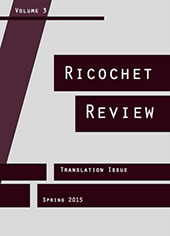 Student poets guided by faculty and editorial editors at Chicago’s Von Steuben Metropolitan Science Center comprise the editorial board of Ricochet Review, an annual poetry magazine that strives to publish both established and emerging writers who work in poetry and/or poetry translations from various languages and various forms of art. The newest issue (#3) features translation from both underrepresented and major languages, as well as through ekphrasis.
Student poets guided by faculty and editorial editors at Chicago’s Von Steuben Metropolitan Science Center comprise the editorial board of Ricochet Review, an annual poetry magazine that strives to publish both established and emerging writers who work in poetry and/or poetry translations from various languages and various forms of art. The newest issue (#3) features translation from both underrepresented and major languages, as well as through ekphrasis.
 Writer Samsun Knight explores the role of conversational dialogue in fiction: “…in reality, nobody ever talks to anyone else. What speech actually achieves is a communication between one person and that person’s idea of the other. Most of the time there is no difference, no discernible difference, between such verisimilitude and the truth. But the best dialogue will manifest this disparity in subtle, slender ways. It will show how, in speaking, we fail to speak.”
Writer Samsun Knight explores the role of conversational dialogue in fiction: “…in reality, nobody ever talks to anyone else. What speech actually achieves is a communication between one person and that person’s idea of the other. Most of the time there is no difference, no discernible difference, between such verisimilitude and the truth. But the best dialogue will manifest this disparity in subtle, slender ways. It will show how, in speaking, we fail to speak.”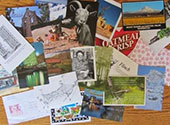 Paul Nelson, poet and lead organizer of the
Paul Nelson, poet and lead organizer of the 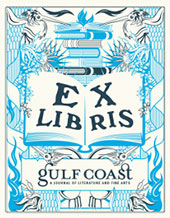 The winner and honorable mentions of the 2014 Barthelme Prize are featured in the Summer/Fall 2015 issue of
The winner and honorable mentions of the 2014 Barthelme Prize are featured in the Summer/Fall 2015 issue of 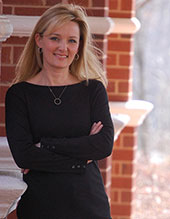
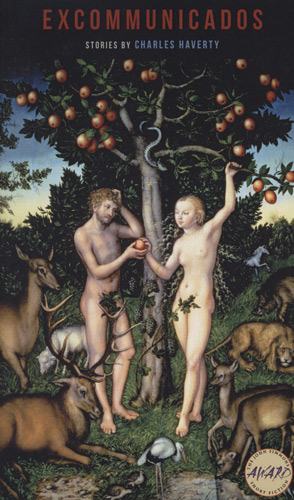 The
The 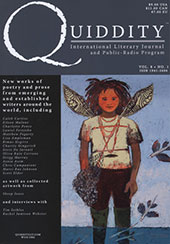 Quiddity
Quiddity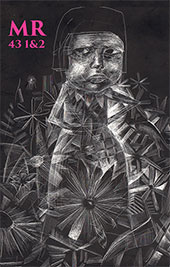
 The Tishman Review
The Tishman Review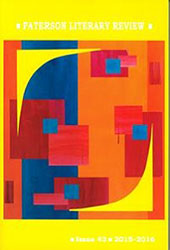 FIRST PRIZE (shared)
FIRST PRIZE (shared)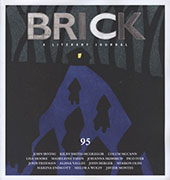 Now this is cool:
Now this is cool: 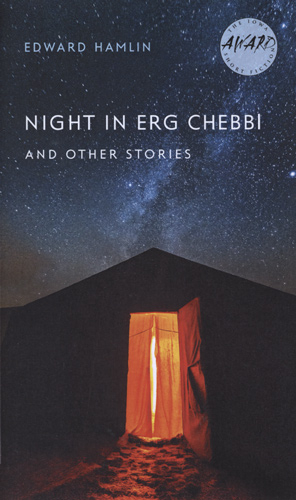 The
The  First place: Spencer Hyde [pictured], of Franktown, CO, wins $1500 for “Light as Wings.” His story will be published in Issue 97 of Glimmer Train Stories. This will be his first major fiction publication.
First place: Spencer Hyde [pictured], of Franktown, CO, wins $1500 for “Light as Wings.” His story will be published in Issue 97 of Glimmer Train Stories. This will be his first major fiction publication.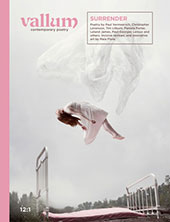 The
The 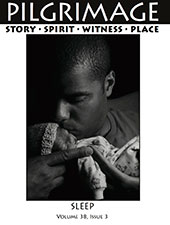
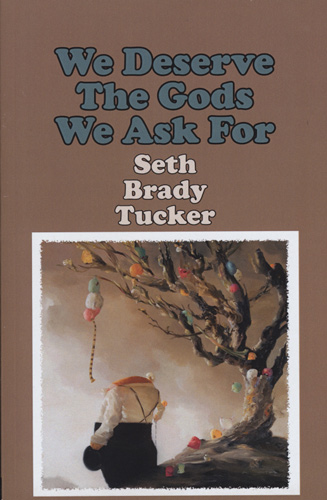 The Gival Press Poetry Award is held annually. Open to national and international poets, winners receive $1,000 and publication. The 2013 winner, We Deserve the Gods We Ask For by Seth Brady Tucker was published this past fall.
The Gival Press Poetry Award is held annually. Open to national and international poets, winners receive $1,000 and publication. The 2013 winner, We Deserve the Gods We Ask For by Seth Brady Tucker was published this past fall.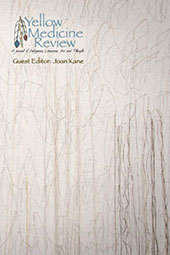
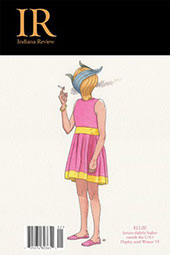

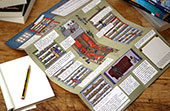 From the mastermind of Shaun Levin come a couple of fantastic creations. The first is
From the mastermind of Shaun Levin come a couple of fantastic creations. The first is 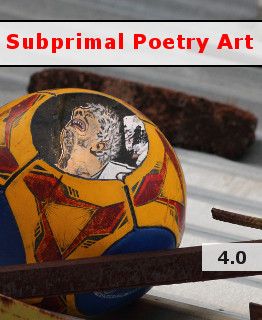 Online literary magazine Subprimal Poetry Art is having a contest to select the theme for their next issue. They are looking for submissions of a theme title and description of approximately 100 words. There is no entry fee to submit to this contest and you can enter up to three times. The winner will receive $50 USD.
Online literary magazine Subprimal Poetry Art is having a contest to select the theme for their next issue. They are looking for submissions of a theme title and description of approximately 100 words. There is no entry fee to submit to this contest and you can enter up to three times. The winner will receive $50 USD.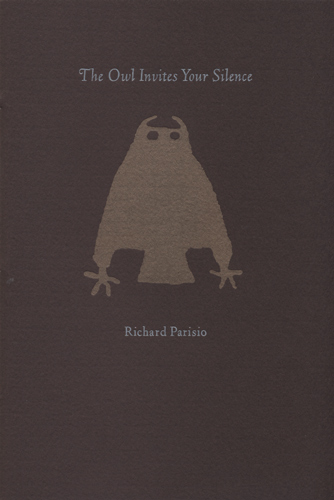 The Slapering Hol Press
The Slapering Hol Press 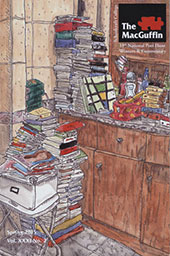 First Place
First Place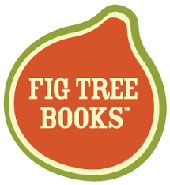 Fredric Price, founder and publisher of Fig Tree said, “We typically describe ‘American’ as dealing with the people or institutions of the United States; this does not mean that the protagonist must be a citizen or that the action must take place exclusively within our country. But the book needs to be grounded in American values, culture or history and American readers need to be able to identify with the characters and the story. For us, the ‘Jewish experience’ means engaging with what it means to be a Jewish American, or how one goes about his or her life practicing (or denying) his/her Judaism, or how one copes with Jewish identity, or deals with social/political/cultural issues associated with being Jewish or interactions between/among Jews and other groups.”
Fredric Price, founder and publisher of Fig Tree said, “We typically describe ‘American’ as dealing with the people or institutions of the United States; this does not mean that the protagonist must be a citizen or that the action must take place exclusively within our country. But the book needs to be grounded in American values, culture or history and American readers need to be able to identify with the characters and the story. For us, the ‘Jewish experience’ means engaging with what it means to be a Jewish American, or how one goes about his or her life practicing (or denying) his/her Judaism, or how one copes with Jewish identity, or deals with social/political/cultural issues associated with being Jewish or interactions between/among Jews and other groups.”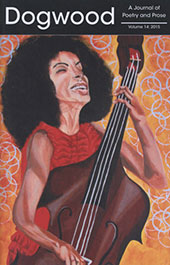 First Prize Creative Nonfiction
First Prize Creative Nonfiction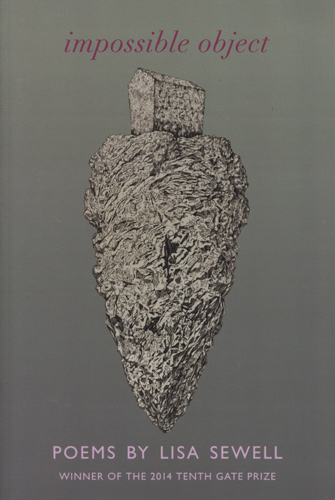 The Word Works’s
The Word Works’s 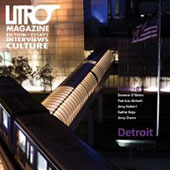 While
While 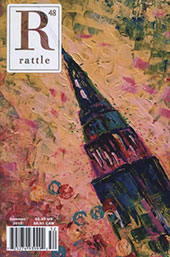 The newest issue of
The newest issue of 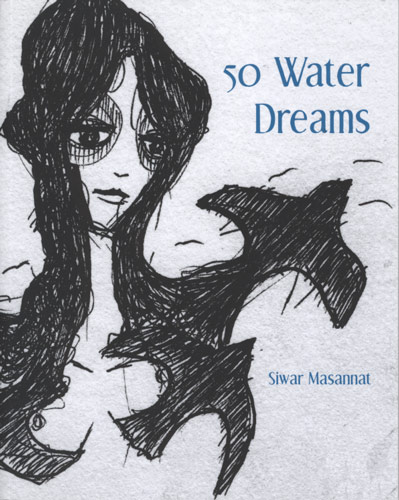 Winner of the
Winner of the 